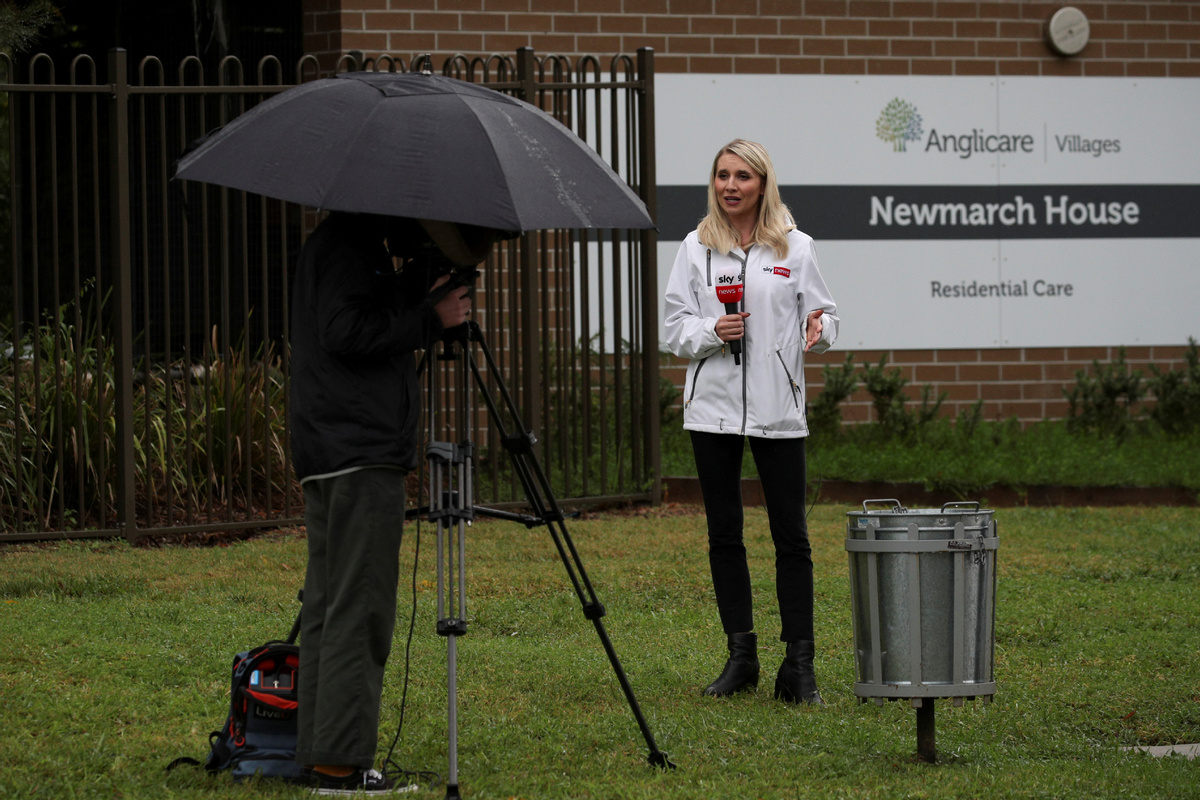Mood chills for foreign reporters in Australia
By KARL WILSON in Sydney | China Daily Global | Updated: 2020-09-22 10:04

Australia has put foreign journalists on notice. Anything they write or broadcast will be monitored by the country's security services to curb reportage deemed "slanted". In other words, any coverage perceived overly critical of Australia.
The warning came from Home Affairs Minister Peter Dutton during a television interview with the Australian Broadcasting Corp, or ABC, on Sept 13.
Although Dutton referred to "foreign" journalists, it was clear to observers he was referring to Chinese media workers who have been caught in a tit-for-tat diplomatic battle between Beijing and Canberra.
"If people are here as journalists, and they're reporting fairly on the news, then that's fine. But if they're here providing a slanted view to a particular community, then we have concern with that," Dutton said.
Now, the question is: who decides if a story or a commentary is unfair or slanted? Will it be the security services, or Dutton-or both?
When the Australian Federal Police raided the homes of four Chinese journalists on June 26 it was justified on the grounds of "foreign interference in the domestic politics of Australia".
In August, two respected Chinese academics, Chen Hong and Li Jianjun, had their visas canceled on spurious claims of foreign interference.
Though so far no one has been charged with any foreign interference crime against Australia, journalists working for Chinese media are, understandably, very worried.
One media person, who did not want to be named, said: "I find it deeply offensive when commentators here refer to Chinese journalists as spies… it is insulting."
He said the irony is that many young Chinese journalists have been trained at some of the best journalism schools in the United States, Australia and Britain.
"Many of those fueling the campaign of fear (in Australia) do so from a position of ignorance," he said.
"You don't have to go too far back in history to see how people like this can change public opinion against a race of people. Many Chinese here, even those who have been here for generations, are starting to feel unwelcomed in the country they call home."
Canberra resident Sam Wong, a retired public servant, told ABC radio recently that he fears he could be "unfairly accused of being" an agent of the Chinese authorities as he is involved in Chinese and multicultural groups.
Wong, who has lived in Australia for 50 years, said the past two years have been the worst he has ever seen in China-Australia relations.
'Gratuitous insults'
One of Australia's leading Sinologists, Griffith University's emeritus professor Colin Mackerras, said Australian leaders seem to persist in "gratuitous insults toward China".
"They blame China every time for the deterioration of the relationship, when in fact it seems to me to be more Australia's fault and China is reacting defensively," he said.
He noted that from a broader perspective, one can say that the US administration is systematically undermining good relations with China and leading allied nations against the Communist Party of China.
"Just last week we are told two Australian journalists were sent out of China, when in fact they left voluntarily," Mackerras said.
While Australians have been told they risk arrest if they travel to China, the people have since come to know that Australian intelligence personnel had invaded the homes of Chinese journalists in late June.
"We had to wait for a Chinese newspaper to reveal it. Then we are told two Chinese scholars have had their visas revoked on national security grounds. It is Australia that is threatening China, not the other way around."
One academic, who wants to be anonymous, said relations have deteriorated to such an extent that Chinese journalists are worried they could be "thrown out for political interference "if they write something vaguely critical of Australia.
David Brophy, senior lecturer in modern Chinese history at the University of Sydney, wrote in a blog on Sept 14 on the Australian National University's China Story website: "Far from upholding liberal values, heightened sensitivity toward 'foreign interference' is putting those values at risk.
"If politicians don't change course, the deterioration of Australia's relationship with China will go hand in hand with the erosion of our civil liberties."
He noted that, since 2017, the Australian Security Intelligence Organisation has been reciting the mantra that Australia faces "unprecedented levels of foreign interference, without ever having satisfactorily justified this claim".
Mackerras said revoking visas on security grounds was "preposterous".
























